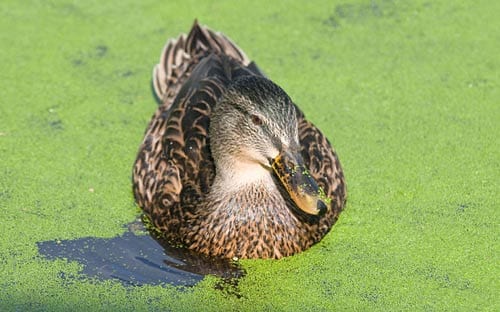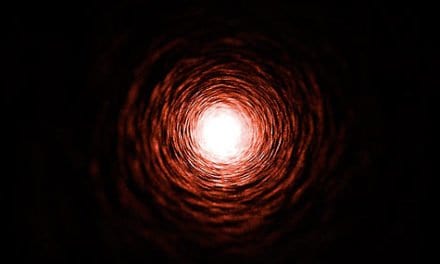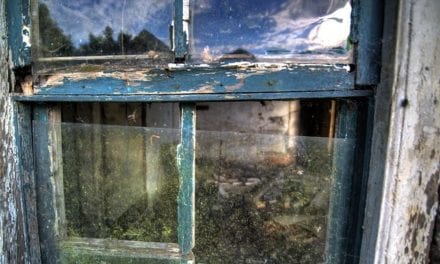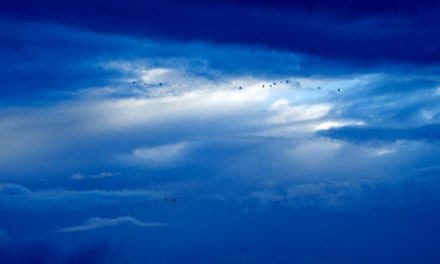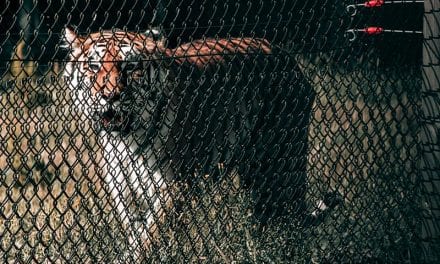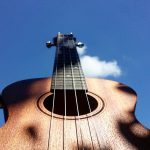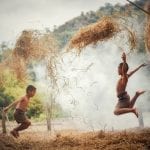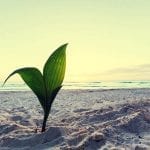The Ecology of Duck Death
It was poor design that killed the duck in the end. A fairly human estimation of how much could get done in a day without bothering to factor in the hours of curiosity.
So when, inevitably, this human fell behind on his chores, all the ducks on the farm had to face their appetite. It didn’t take them long to remember their wings and glide over the fence into the neighbor’s garden. And there they took to devouring strawberries instead of snails.
It had to be done.
They were run down, caught, and their wings were clipped.
Normally, this wouldn’t harm a duck. They’d go about waddling their usual way. Muscovy ducks in particular aren’t much for flying. They’re from the tropics, they stay still. So when this single duck sought the abundance of a particular cement reservoir, he stayed.
This reservoir has four walls a meter high. It’s been leaking from the base for years. Only a few inches of water stand at the bottom. Without wings or long legs there’s no way out.
Once inside, the duck felt her beauty. She delighted in looking down on her throne of decayed weeds and posing for everyone who could see her on it. If she could have spoken, her only gripe would have been that no one stopped to visit. Not the clouds running on. The songbirds always held their distance. The waning Moon high in the daylight couldn’t wait to dip into the horizon. Although the duck worried about how fast she was eating there was still duckweed in abundance. She would welcome anyone to share the reservoir. Even when a pair of frog eyes poked above the surface, the duck eagerly waddled closer.
But, to survive, the frog can’t play. The frog won’t get to know you. You are a danger to the frog. Forever and always. He won’t acclimate to your presence because you stand still on ferns. The frog is watching. He is forced to find his escape. This particular frog scraped himself along the cement until he met the leak in the reservoir and got away.
Outside the walls, the frog still couldn’t relax. He kicked and swam in search of cover. Immediately he found mud for cover. He caught his breath and waited out his nerves. He logged every movement in his new gulch. His nerves wouldn’t calm. It was greener there, but it was still dangerous. Cold set in. The frog raced up into some hyacinth roots, looked about, darted towards some grasses, looked about, and poked his eyes up through the lush green.
There, nestled in the watercress, he felt a marginal safety and the calming of the sun. And in his contentment he pooped.
And, you know, poop’s gonna break up. Most of it drops in place but a bit of it always flows down with the current. And sometimes, on this land, a small poopchunk diverts from the irrigation into a pond. And that’s where it settles down with all the other poops and feeds the anaerobic seal. And the anaerobic seal, since this pond’s modeled on a bog- do you know about the anaerobic process that creates bogs?
Assuming you don’t, it’s a bacterial process in which the organic material growing in a flooded plain dies back and is then eaten up by bacteria without the presence of free oxygen. And this process under constant flooding maintains and protects the anaerobic bacteria which, I’m given to understand, maintains the soil impermeable to water. It’s basically, a free method of storing ninety-nine percent of your water without having to use plastic or concrete. And you can feed it with poop.
And what does the pond have to say about this?
The pond says, “Listen up bud. I’ve been digesting poop now, going on three months. And it’s not glamorous. But if I don’t do it the humidity drops. And every morning there’s dew on the ground thanks to me. You feel that frost? No? That’s me. And you see our new friend, Avocado? She couldn’t grow in the cold without me.”
It must have been true, too. Where the rest of the woods held back their expectation of warmth the avocado felt the sun reflected on the small pond and like all things that feel the sun, she quivered. That little warmth let the avocado stretch out enough to do what she always longed for which was to eat fully from her roots and breath deep from her leaves so she could grow closer to everything that sustains her. This avocado dreamt long ago of the day when she could caress the pond’s bank and swore she’d be pretty when it happened. She’d pump every spare cell she had into her berries.
But as life is hard, her berries fell. And it’s important to understand that the Avocado is a proud tree. Everyone who knows her personally knows not to mention there’s one less treasure in her hair. We scuttle forward, retrieve the avocados in silence, and we thank her. Then we move on.
And when the geese spotted the avocados they rolled on as if they weren’t there. To the untrained it might seem that geese are sympathetic to the avocado’s feelings. But geese don’t care. They ignored the avocados because in that moment they were all about gooseberries. In that moment their purpose in life was to roll strong and pilfer gooseberries. No one stands in the way of the goose.
But a goose’s memory isn’t their strong-point. They had watched the gooseberry harvest from the far side of the fence with glib yaps and a few yammers just a few weeks prior. Then, they’d been let in and they’d gleaned what was left. And still, at the sight of bare gooseberry bushes, these geese squawked their mightiest displeasure. In ritual calls, back and forth, rhythmically, they squawked and squawked back. They let loose and bit branches to let them have it. They rolled on back to the avocados where they bit at them too, just to see them broken. They rolled away, those hungry beasts, nipping at torn grasses as they went. Looking for something new to charge. That’s about when they spotted their friends the pigs.
They have fine days. Those pigs. There’s a, a nodule on some roots. If there’s nothing else to eat they can spend whole minutes with their face underground smelling it out. It’s a snack, I suppose. They taste a bit like, chickpeas? They look like chickpeas. When the geese rolled up, stretched out their wings to make themselves huge, squawked like mad and charged, the pigs didn’t notice. They didn’t notice until the geese bit their ears. And the geese held so fierce to the pig’s ears that the pigs dragged the geese off like earrings while they whined and scampered. When they got far enough away the geese let go and returned as champions to the gaggle rolling spaciously by.
When finally, the geese had passed, the pigs trotted back and stuck their faces right back underground.
“They’re rhizobium.” called the human. But the pigs didn’t care or answer.
With his head rested on the end of a shovel the human let his mind wander. He’d always been a bit jealous of the pigs. Pigs are so unaware of everything they’re not eating. And he always felt such human pressure to see the whole. It never did him good. What he wanted was to live like pigs eating rhizobium. Or potatoes. Or ryegrass. Or really anything they like. Which is most things.
But focusing on the pigs always dragged the human out of the moment. He remembered too clearly that the real and physical pigs were actually hungry and he should already have their next day’s paddock ready. But, even if they whined another day and scarfed down less rhizobia than they could eat, and even if he had to feed them more grain than he could afford, it was worth his distraction. This human has always argued that his distraction enriches his life. That day, it didn’t teach him much. But, if he’d have worked straight through to nighttime he’d never’ve chuckled at how big of jerks the geese can be, and he wouldn’t have remembered that you can provide a small part of a pig’s diet from yet another thing that’s already underground.
“Just think about your stomach pigs.” the human mocked, “Don’t worry about all the legumes you’re dismembering. Whine and dig. That’s all you lovelies do.” And he mimicked their whines with his own high-pitched approximation. “HHmmm HHmmm HHHMMmm.”
That they heard. He hadn’t spoken pig until then. The pigs ran over to the limit of the electric fence and whined in chorus “hhHHMMMmmm.”
‘Really?’ he thought.
“Bad luck pigs.” he told them. “I’m thirsty.” And he made his way back to the reservoir. But knowing the adorable faces pigs put on when they’re sad, he made the mistake of looking back at them before leaning over to take his drink. They hadn’t moved. They were still standing at the limit of the fence. Quiet, sluggish and staring.
“Keep whining.” he called and eager to get away from their stares he leaned over to drink. Instead he locked eyes with the duck.
“You still stuck?”
The duck cocked his head. Expression saying, ‘Welcome!’
“Don’t you wanna come out? …. You think I won’t get in there after you ‘cause I’d get my feet wet and I don’t have your marvelous plume…. Uh huh. I’m on to you. Gimme a sec.” said the human, and set off.
There’s a closet in the barn filled with food and along beside it is a few fresh logs laid against the wall, hidden beneath that are corridors between the wood where free reign is given to mice who dart from their hollow door to the stores in the closet. And inside the closet, because the silly human thought that it would help to lift the bags up on chairs; the mice relish a good climb. This day the human heard the mice scuttling over the bags of grain and jumped over to the doors. He threw them open and then danced and shouted in the hope that if he danced and shouted long enough the mice would feel too afraid to come back out. But they scuttled into the breaks between the stone walls. There they watched and waited him out. The human grunted, left the doors open, lifted a log on his shoulder, grunted one final warning and set out.
And off the human went with his log, chuckling at how confused the mice must be that he kept adding and then slowly robbing their cover. Wrapped away in his own mind, he knocked the log against every possible obstacle. But that’s what’s great about a log. You don’t have to worry about it. You can bang it against trees as you walk. Drag it along. Drop it in a reservoir to rot with its end set up over the wall as a bridge out of the reservoir. And, mistreat it though you will, what does the log do? It uses its last energy in life to consolidate nutrients and transport them out. Even if they steep out into the water instead of back to the roots. It never minds. It’s the duty of the log to support you.
And so did nitrogen leach to the reservoir like tea. She was carried and lost on the current. And nitrogen, one should remember, had lived so long and in so many ways she could almost be called immortal, could no longer tolerate freedom. Yet, it was only in these phases of transition that she came to realize how much she valued the time she spent in a structured system. And more than that, learned how much she missed her brother carbon and longed to be once again beside him in that great system beyond themselves. And as she was primed to bear the fate of the frog and be cast from the reservoir into the next great wild, the next great something appeared. It was a cell inside a duckweed who gave up hydrogen just to have her.
In some ways of looking at it the duckweed ate the nitrogen. I like to think that’s what duckweed does. It just goes around eating nitrogen. But duckweed does boring things too. Like eat heavy metals to purify water. Make protein. Cover water like skin to remove mosquito egg niches. And mostly, as comic as it seems to me, duckweed does get gobbled up by ducks.
I think ducks can eat nothing but duckweed and not die.
And this duck did. She ate it up so fast it didn’t have time to grow back. So instead of food she saw the reflection of the human spying on her. He hadn’t left after he dropped off the log. He sat and watched the duck for hours hoping to harvest his anecdote about what the duck did that time he left the log in the reservoir.
“What’re you gonna do when your food runs out, duck?” asked the human.
The duck wasn’t worried.
“There’s just not enough food in there long term. You’ve gotta get out duck.”
The duck was content.
“You like it in there, don’t you duck?” Sucking his teeth, the human waved the duck away. “Enjoy the night.” he said. And headed home.
But night is when the courage of the fox flares. And when the fox found the duck he froze on the precipice of the reservoir, weighing his hunger against his fear of swimming. While the duck was briefly excited to have a visitor.
Finally, the log served its poor design. It was a bridge out.

